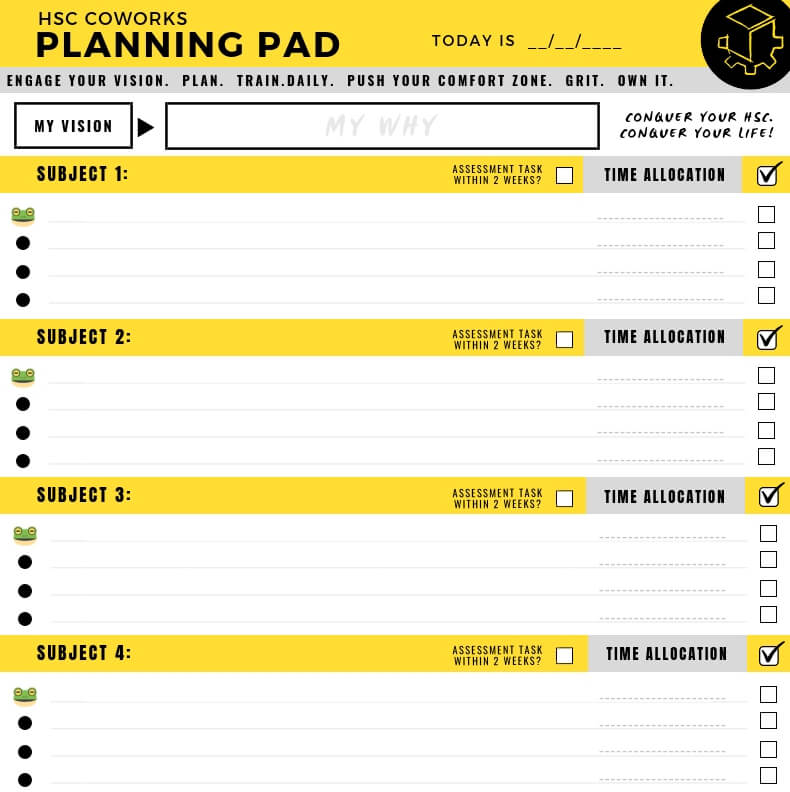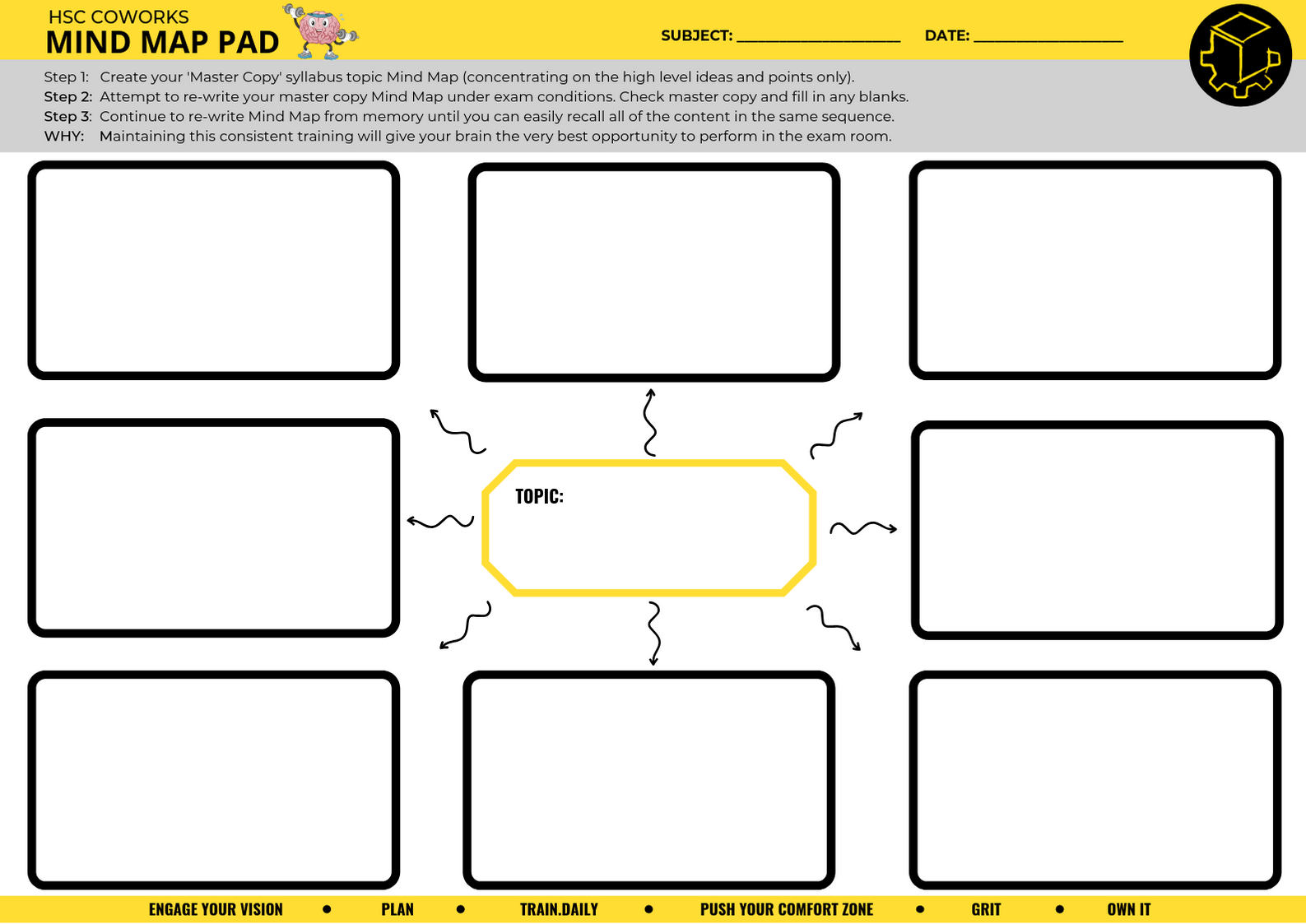When it comes to improving our performance, it is often the tasks we least want to do that hold the greatest potential for growth. The challenge, however, is that humans naturally avoid tasks that feel uncomfortable or require lot’s of effort. These tasks push us beyond our comfort zone, which can feel daunting. However – pushing our comfort zone (HSC CoWorks Key Behaviour #4) is essential for progress. Engaging in tasks that challenge us forces our brains to create new neural connections or strengthen existing ones, a process that demands additional energy and effort. While this may feel uncomfortable, it is precisely this process that drives improvement and moves us closer to our goals.
How to Move Beyond the Comfort Zone
Since our brains instinctively choose comfort, we must take deliberate steps to push ourselves beyond familiar, easy tasks. Here’s how students can embrace the tasks they tend to avoid:
1. Connect with the WHY
The willingness to be uncomfortable stems from a strong connection to the why behind the task. When students understand the benefits of tackling difficult tasks, they are more likely to persevere through discomfort.
Asking the question, “Why am I doing this?” can provide the necessary motivation to move forward.
What are the rewards, benefits and good feelings awaiting you at the end of your HSC? How much do you want these?

2. Take Proactive Action
Students who break tasks into smaller, more manageable steps and begin working on them weeks in advance can make incremental progress without feeling overwhelmed. This gradual approach from operating “inside of your comfort zone” to “outside of your comfort zone” helps build new neural pathways over time, making challenging tasks easier. The only barrier to taking proactive action is a weak connection to the why, which often leads to choosing comfort zone tasks over the tasks that truly matter.
3. Build Certainty with Foundational Content
A strong grasp of foundational knowledge creates the confidence needed to step beyond the comfort zone. When students are uncertain about the basics, they are more likely to avoid complex tasks and procrastinate until the last minute. Daily training under exam conditions—just 20 minutes per day—can significantly improve familiarity and reduce the fear of tackling unfamiliar territory.
The Power of Discomfort
Ultimately, success comes from consistently engaging in the tasks we’d rather avoid. Discomfort is a sign of growth, and every moment spent outside the comfort zone is an investment in long-term improvement.
By understanding the importance of these tasks, breaking them down into manageable steps, and reinforcing foundational knowledge, students can build the resilience and confidence needed to achieve their goals.

We are here to help as well so don’t hesitate to call one of our friendly team for instant support and guidance.














